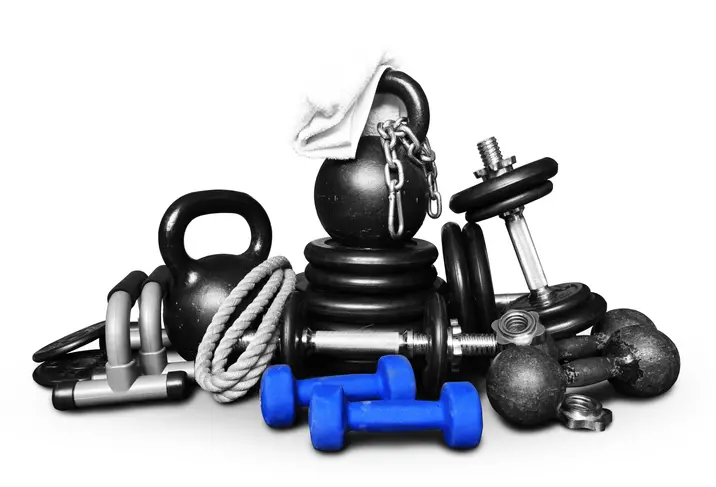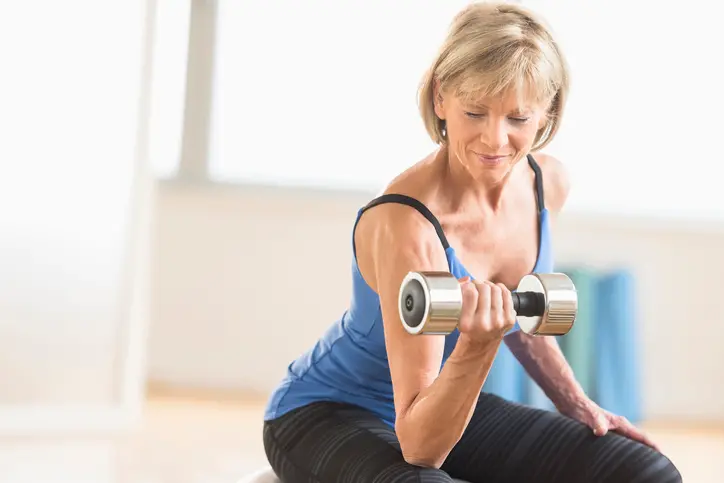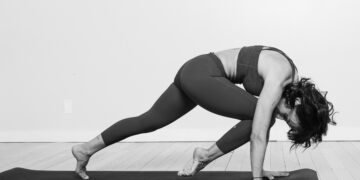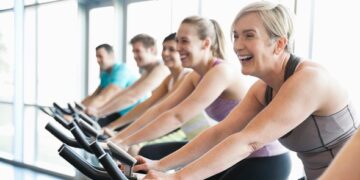Lift heavy, smile more? The latest research suggests weight training may be a powerful tool in improving your mental health
 If you’re already a fan of weight training, this will likely come as no surprise: new research is showing that resistance training may give cardio a run for its money when it comes to mental health benefits.
If you’re already a fan of weight training, this will likely come as no surprise: new research is showing that resistance training may give cardio a run for its money when it comes to mental health benefits.
Well, there’s a small caveat to that statement.
“The positive effects of resistance training on mental health is not new evidence, per say,” explains Araceli De Leon, M.S., an American Council on Exercise certified health coach and certified personal trainer. “The evidence … demonstrates that it is now being looked at as an alternative to the treatment of depressive symptoms and anxiety.”
Luckily, there is a wide body of research that has linked any exercise – and more specifically, resistance training – to positive mental health, which is fantastic news for anyone looking for a natural way to stay happy and healthy.
 A Wealth of Evidence
A Wealth of Evidence
A 2018 meta-analysis published in JAMA Psychiatry showed that resistance training reduces symptoms of mild to moderate depression. “Resistance training regulates your blood flow and heart rate, which clears away brain fog and pumps you with endorphins,” De Leon points out.
In addition, lifting heavy dumbbells or using other forms of resistance like bands can reduce levels of cortisol, widely known as the stress hormone, which means it may be able to help you better regulate your mood. Plus, those “feel-good” endorphins that your body releases as you get your pump on can further curtail feelings of stress and pain.
Even better: the more you keep at it, the better it’ll get. As De Leon notes, “Over a consistent period, you begin to feel better overall, rather than just after a workout.” And as you begin to feel confident and grateful for your new, well-earned muscles, your self-esteem will reach all new heights.
With your newfound strength, your mind-muscle connection will also be reinforced, which De Leon says won’t only enhance your mental health but potentially your physical health as well.
“This not only helps in reducing injury but allows you to listen to your body’s needs and intuition,” she says. “Strength training can also bolster neuroprotective growth factors and reduce inflammatory markers in the brain.”
 Getting Started
Getting Started
If you haven’t yet hopped aboard the resistance-training train, your interest has hopefully been piqued. And if the only thing holding you back is a concern that you’ll get “too bulky,” De Leon has some news for you: women just don’t have the right mix of hormones and musculature to get a physique on the level of The Rock.
Once you’re ready to get sweaty, the most important thing is to find exercises and a workout modality – supersets, circuits, or straight sets – that jives with what you enjoy and what is within your capabilities. De Leon explains that this will vary from person to person – there’s no one-size-fits-all solution.
“At the end of the day, the type of resistance training may not be as important as the mental health benefits that the person gets from doing the style they enjoy most,” she says. “Whether it’s bodyweight training, machines, free weights, cables or bands, resistance training can have many positive mental health benefits. My recommendation is to focus on what feels best in your body and what you enjoy most; this will help with motivation and consistency.”
Staying the Course
Hiring a personal trainer to show you the ropes is a good place to start, or you could find inspiration with these D’FYNE-approved workouts. Aim to perform at least two resistance training sessions each week in addition to your cardio workouts, and don’t be afraid to switch up the exercises and equipment you use. Your body craves variety!
Above all, remember that whatever your age – 40, 60, 88 – you will feel the benefits of resistance work, both now and into your future.
“From a holistic, person-centered approach, strength training can directly or indirectly improve many areas of your life through determination, improved mental strength, a better night’s sleep, improved body image and self-esteem,” Del Leon concludes. “Getting started at any stage in life is possible and beneficial. My 72-year-old client started in her 60s, she lost weight, got stronger and increased her BMD (bone mineral density). It’s never too late.”


 A Wealth of Evidence
A Wealth of Evidence Getting Started
Getting Started













